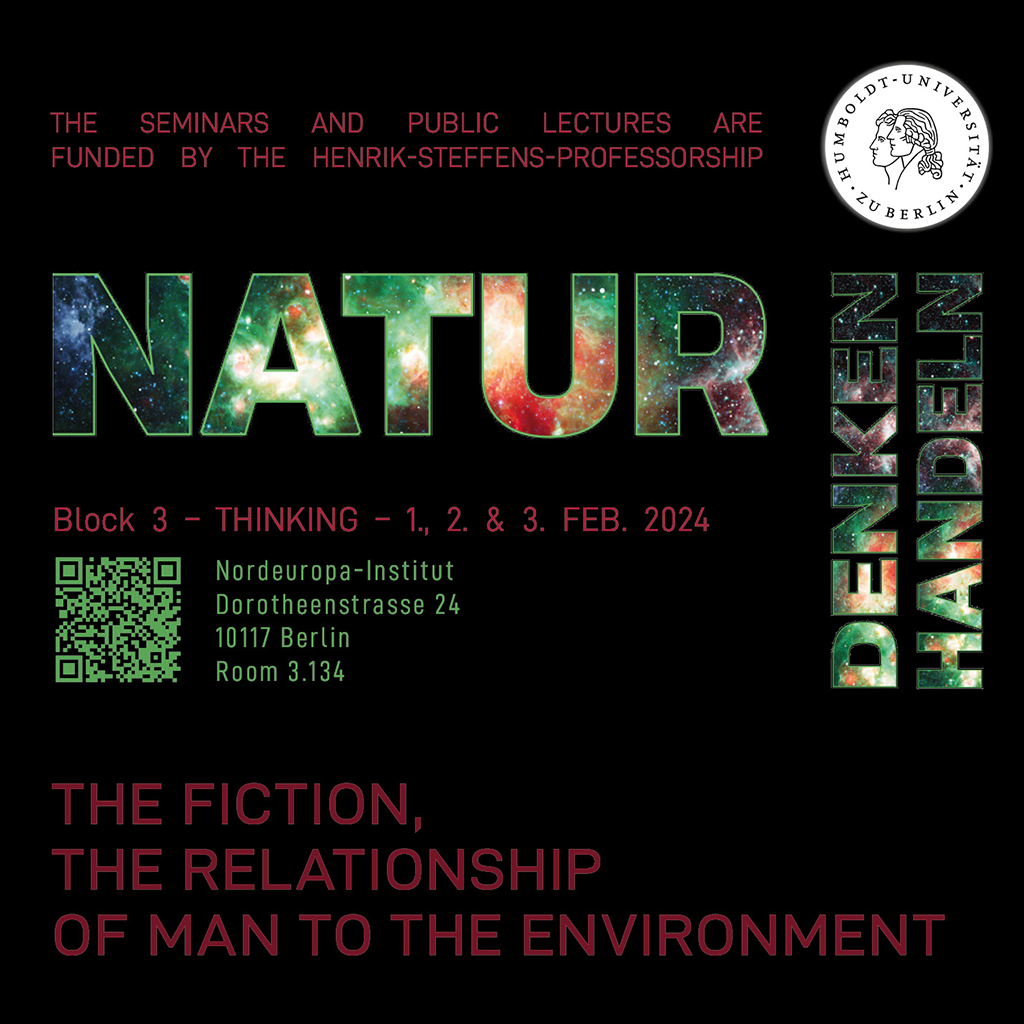Ghostly Trees and Evil Plants. The Dark Sides of Literary and Cultural Plant Studies – Dr. Solvejg Nitzke
Block 3 – Henrik-Steffens-Seminarreihe "NATUR – DENKEN − HANDELN" – Die Fiktion, die Beziehung von Mensch zu Umwelt – The fiction, the relationship of man to the environment.
- https://www.ni.hu-berlin.de/de/termine-ordner/ws-23-24/hsv/20240202-hsv-ndh
- Ghostly Trees and Evil Plants. The Dark Sides of Literary and Cultural Plant Studies – Dr. Solvejg Nitzke
- 2024-02-02T17:00:00+01:00
- 2024-02-02T18:30:00+01:00
- Block 3 – Henrik-Steffens-Seminarreihe "NATUR – DENKEN − HANDELN" – Die Fiktion, die Beziehung von Mensch zu Umwelt – The fiction, the relationship of man to the environment.
- Was Henrik-Steffens-Vorlesung Natur – Denken – Handeln
- Wann 02.02.2024 von 17:00 bis 18:30
- Wo DOR24, Raum 3.134
- Name des Kontakts Dagny Stuedahl
- Web Externe Webseite besuchen
-
iCal

If we regard plants at all, we rarely give them credit for agency, let alone the capacity to act malevolently. Gardeners might develop ferocious hatred of so-called weeds, but those seem far away from the monsters that populate plant horror fiction. From the triffids and plant aliens of Science Fiction to the real monster-weeds covering entire landscapes, plant horror connects to environmental crises in intriguing and haunting ways. Ghost trees and haunted trees talk of futures past and lost opportunity but they also act as a warning sign that we need to learn how to read and act upon. In this talk I will introduce you to some of the most dangerous plants in fiction and beyond and explore how notions of good and evil, monstrous and natural are blurred in plants and plant fiction. This, I aim to show, serves us as an index for our own haunted and haunting relationships with plants and nonhuman beings. Learning how to communicate with ghosts and acknowledging our own vegetal monstrosity might be one key to future coexistence with our nonhuman others.
